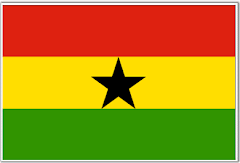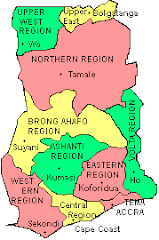Today, being Friday, there was at a meeting at the office with most of the Mofa staff and we worked out that next week I’ll accompany the AEA’s to meet with their farmer groups. It’s been a couple weeks but with some issues going on at work like the director loosing his mother, the former director passing away after being in the hospital for a while, as well as some trouble with securing tractor owners and operators to plow a certain amount of acres for a rice expansion project funded by Mofa at the national level. With this in mind, I haven’t quite found my niche within Mofa as some things are out of my control, and I’ve been trying to put myself out there as ready and willing to contribute but with little success so far. Maybe I’m used to the work setting in
However, at the director set the tone and told the AEA’s that I’ll be working with them next week and then I set up the dates where I’ll go with them to meet farmer groups to introduce myself, ask some questions, and give the heads up about the AAB program that we’re piloting in this district, which means future meetings with farmer groups to discuss the AAB curriculum facilitated by AEA’s. Once the momentum picks up I’ll explain Agriculture as a business (AAB) in more detail.
I’m not entirely sure of my audience, i.e. who is following along and reading, therefore I’m trying to cater to a diverse audience and cover many different aspects of my experiences in
I was given the opportunity to attend an important meeting in Bolga that concerned the entire Upper East Region though. It was the launching (or sensitizing as they say here) of the Northern Rural Growth Program (NRGP) which is a 100 million (US$) project designed to help develop the three northern regions of Ghana mainly funded by the African Development Bank and the International Fund for Agriculture Development? (I think that’s what IFAD stands for). Anyways, the program looks like it’s taking a good approach and the potential is exciting. I’m not naïve and remain critical and skeptical but I don’t know enough to judge and I’m remaining positive and thinking about how EWB can fit into this project which overlaps a bit with AAB. In fact,
For instance, one can look at how Guinness here in



























